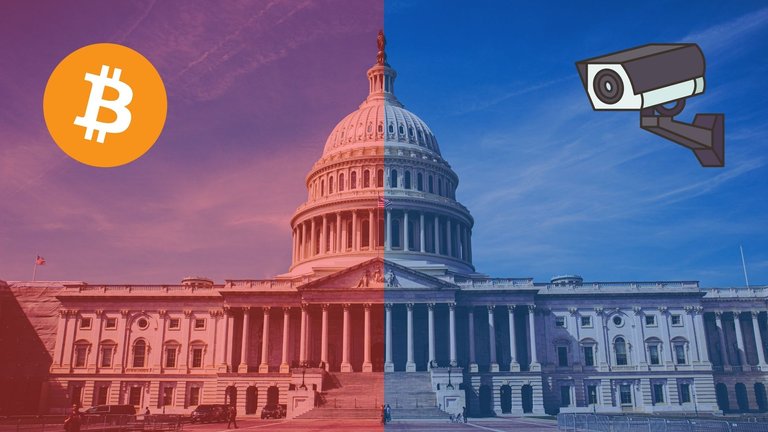In a significant development on Capitol Hill, U.S. Representative Tom Emmer celebrated the passage of his groundbreaking Anti-CBDC bill. This legislation, a key milestone in the ongoing debate over central bank digital currencies, is designed to prevent the Federal Reserve from issuing a CBDC to American citizens.
This legislative initiative has been the culmination of years of effort and collaboration, now enjoying much needed support. However, the bipartisan nature of this endeavor reveals a nuanced and complex landscape in Congress, with Democrats and Republicans sharply divided on the issue of CBDCs and digital currency regulation.
This article delves into the intricacies of this pivotal legislative move, exploring the concerns, objectives, and political dynamics surrounding the Anti-CBDC bill.

On September 20th, U.S. Representative and House Majority Whip Tom Emmer announced that his Anti-CBDC bill was passed by the House Financial Services Committee and will now pass directly to the floor of the House of Representatives.
This legislation would prevent the Federal Reserve from issuing a CBDC (central bank digital currency) directly to United States citizens.
Congressman Emmer believes that a CBDC would become a “financial surveillance tool that will undermine the American way of life”.
Previously, I wrote about the CBDC Anti-Surveillance State Act (H.R. 5403) being reintroduced into Congress on September 12th, with 50 representatives co-sponsoring.
H.R. 5403 now enters the House floor with a grand total of 60 co-sponsors, which is an increase of 10 co-sponsors in just over a week.
You can read the complete bill here: https://emmer.house.gov/_cache/files/0/4/04d8b0b2-dcd2-48ab-b405-55bf9f40b37f/88BAFED98BF71E481C629664D5D400C7.emmer-011-xml.pdf
“I’m extremely proud to have this legislation, that frankly, I have been working on for three years at least, the CBDC Anti-Surveillance State Act, included in your markup today. It’s the first anti-central bank digital currency legislative effort introduced in the United States and for the past two Congresses, we’ve worked with my colleagues and with stakeholder groups to update, improve, and grow support for this bill. Today, this bill has the support of 60 Members of Congress and groups ranging from the Independent Community Bankers Association and American Bankers Association to Club for Growth, Heritage Action, and the Blockchain Association. We’ve come a long way.” - Tom Emmer, U.S. Representative and Majority Whip
In a post, Rep. Tom Emmer claims that the passed bill is the first anti-CBDC bill in the history of the United States.
This marks a moment in time where the American people, and their political representatives, took the first step towards preventing a CBDC that would be weaponized against citizens.
To close out his speech, Rep. Emmer called for both Democrats and Republicans to come together and support a bill “which protects innovation and defends against an ever-expanding government surveillance state”.
A call for unity is a refreshing sight in 2023.
“Unlike decentralized cryptocurrencies, a central bank digital currency is a digital form of sovereign currency that is designed and issued by a government and transacts on a digital ledger that is controlled by that government. In short, a central bank digital currency is government-controlled programmable money that, if not designed to emulate cash, could give the federal government the ability to surveil and restrict Americans’ transactions. This is not just alarming — it’s downright un-American. We’ve already seen examples of governments weaponizing their financial system against their citizens.” - Tom Emmer, U.S. Representative and Majority Whip
Unfortunately, this call for unity seemed to fall on deaf ears, as none of the Democrats sitting on House Financial Services Committee voted in favor of the CBDC Anti-Surveillance State Act.
In fact, out of the 60 congressmen there are currently co-sponsoring H.R. 5403, none of them are Democrats.
Democratic committee members claimed the bill was “anti-innovation”, and passage of this bill would result in the US Dollar losing “status as the world’s reserve currency”.
U.S. Representative Brad Sherman from California even took to X, formerly Twitter, to call out “Crypto Bros” and took pride in the fact that all 20 Democrats voted “No” on the anti-CBDC bill.
In Rep. Sherman’s speech he claimed that he would “be willing to support this bill if it also ended crypto”.
In my opinion, one shouldn’t be proud to disagree with someone based of partisan politics, regardless of which side you support.
I would like to give Congressman Sherman, and his fellow Democrat committee members, the benefit of the doubt and trust that they truly believe they are doing what is best for their constituents. However, it is hard in a situation like this, where it appears clear that limiting the government’s ability to spy and oppress citizens is good, and all members vote along party lines.
At the end of the day, I wish there was more civil discourse taking place at these committee meeting. Feels like all these politicans do is wait to speak, they don’t even listen to what is being said by others. They go into each meeting and interactions with their minds made up, unable to concede, unable to challenge their own ideas, and ultimately imprisoned by those same ideas.
Nothing will happen until people are willing to listen.
Now that the Anti-CBDC bill has passed the Financial Services Committee, what are its chances at being passed by the House and moving forward to the Senate floor?
Do these types of stories, where politics and crypto mix, interest you?
What are your thoughts on this news? Join the conversation below!
Check out my Socials: https://linktr.ee/zerorequiem0x
Read My Latest Posts: